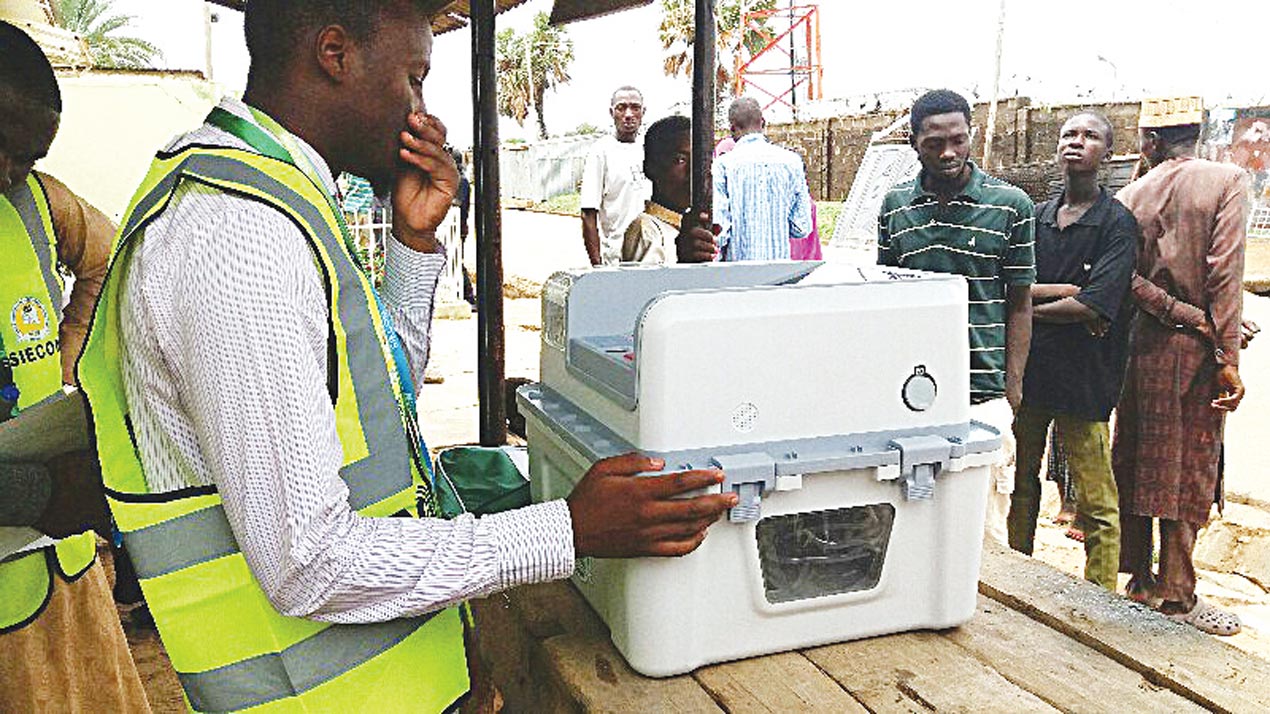2023: INEC, election timetable and the conduct of primaries
By Ahmed Y. Hassan Usually, election everywhere in the world is clouded with divided interests and drama. As Abraham Lincoln said, the ballot is stronger than the bullet. People, who understand how powerful electioneering exercise is, will do everything possible either to exploit its loopholes or to ensure that the process is strong enough for […]

By Ahmed Y. Hassan
Usually, election everywhere in the world is clouded with divided interests and drama. As Abraham Lincoln said, the ballot is stronger than the bullet. People, who understand how powerful electioneering exercise is, will do everything possible either to exploit its loopholes or to ensure that the process is strong enough for free and fair election.
Currently, Nigeria is at a crossroad and the 2023 general election is very important. In fact, it is an opportunity that will either mar or make us. As such, it is high time for citizens to remember that politics is too important a matter that must not be left in the hands of politicians, especially Nigerian politicians who are known to skewing things to their favour.
While most political parties are already busy deciding their flag bearers for various political offices, the dilly dallying on the primaries, leading to the readjustment of the Timetable and Schedule of Activities for the 2023 General Election, is below par on the part of the political parties. The Independent National Electoral Commission (INEC), which released the timetable and schedule a day after the Electoral Act 2022 was passed, had to readjust the timeline to allow political parties finish up with their primaries.
INEC timetable and schedule of activities had 14 activities from the publication of notice for the election to the election day. The third activity on the timetable is the conduct of primaries by political parties and was expected to be for 60 days which should have elapsed on June 3, 2022 but parties did not live up to expectation. Sadly, all the 18 political parties scheduled their presidential primaries in the last seven days of the period earmarked for the exercise.
Information available on the commission’s website indicate that Accord Party had slated its primary for 02/06/2022, Action Alliance for 03/06/2022, African Action Congress for 03/06/2022, African Democratic Party 01/06/2022, while Action Democratic Party is for 02/06/2022. The All Progressives Congress was 29-30/05/2022, All Progressive Grand Alliance 01/06/2022, Allied People’s Movement dated their primary for 03/06/2022, Action People’s Party, 27/05/2022 while Boot Party was scheduled for 03/06/2022 and Labour Party went for the same date. New Nigeria People’s Party was for 1-2/06/2022, National Rescue Movement for 1-2/06/2022, People’s Democratic Party went for 29/05/2022, People’s Redemption Party for 31/05/2022, Social Democratic Party for 02/06/2022, Young Progressives Party for 03/06/2022 and Zenith Labour Party for 01/06/2022.
At the May 9, 2022 edition of a regular quarterly meeting between the election umpire and stakeholders’, Inter-Party Advisory Council (IPAC), a body of the 18 political parties requested INEC to consider an extension of the timeframe for party primaries by another 60 days (2 months). They argued that the time was too short and would put a lot of pressure on them and to enable them to fully comply with the provisions of the new Electoral Act 2022.
While the request was turned down, the parties had written again on May 12, 2022, reminding the commission of their request for extension, a request which was also refused before an approval was finally granted on May 27, 2022 when IPAC called for an emergency meeting with the commission where the political parties presented a modified request for a one-week extension of the time frame for party primaries for the same reason they pleaded for 37 to 60 days extension earlier.
The one-week extension covered the period from June 4 to 9. No specific activities have been listed during that period. Rather, it was left open for parties to prepare their list of candidates before uploading same to the INEC web portal.
The next activity on the timetable is the submission of list of candidates for presidential and National Assembly elections (10th – 17th June 2022). Obviously, the lack of respect for the election timetable and schedule would have affected the overlapping activities in the election process if the 6-day grace granted by the commission was not in the plan – thankfully the election timetable remained essentially unaltered.
While it is sad that only a few parties have conducted primaries, although many have indicated their desire to seize the opportunity of the six-day extension to reschedule their primaries, INEC should have no reason to welcome any further request of extension from the parties. INEC must not also succumb to any unilateral decision that will benefit any political party.
Interestingly, online submission of the list of the candidates that the parties propose to sponsor is the next critical activity after the conduct of primaries. Four officials from each of the 18 political parties, making a total of 72 in all, would be trained on the use of the portal. Sadly, some political parties are yet to submit their nominees for the training.
While it is commendable that INEC decided to train the political party officials to make efficient and effective use of the portal, there is the need for training to be done on time while political parties must take proper advantage of the opportunity to avoid delay relating to technical problems.
As the rest of the world watches the electioneering activities in Nigeria with keen interest, it is important that all stakeholders play their parts not only on the Election Day but the many activities that precede the D-day to ensure free and fair election.
Hassan wrote from Birmingham University, United Kingdom
